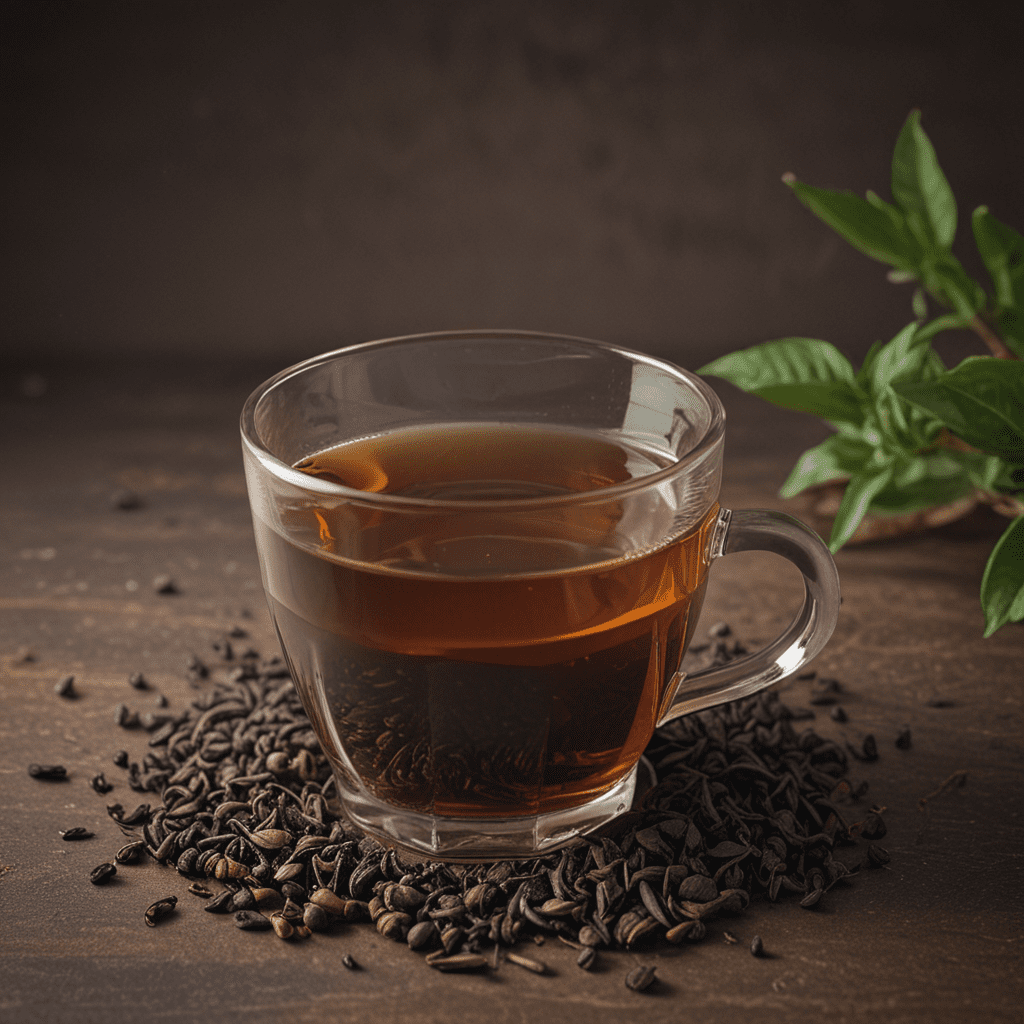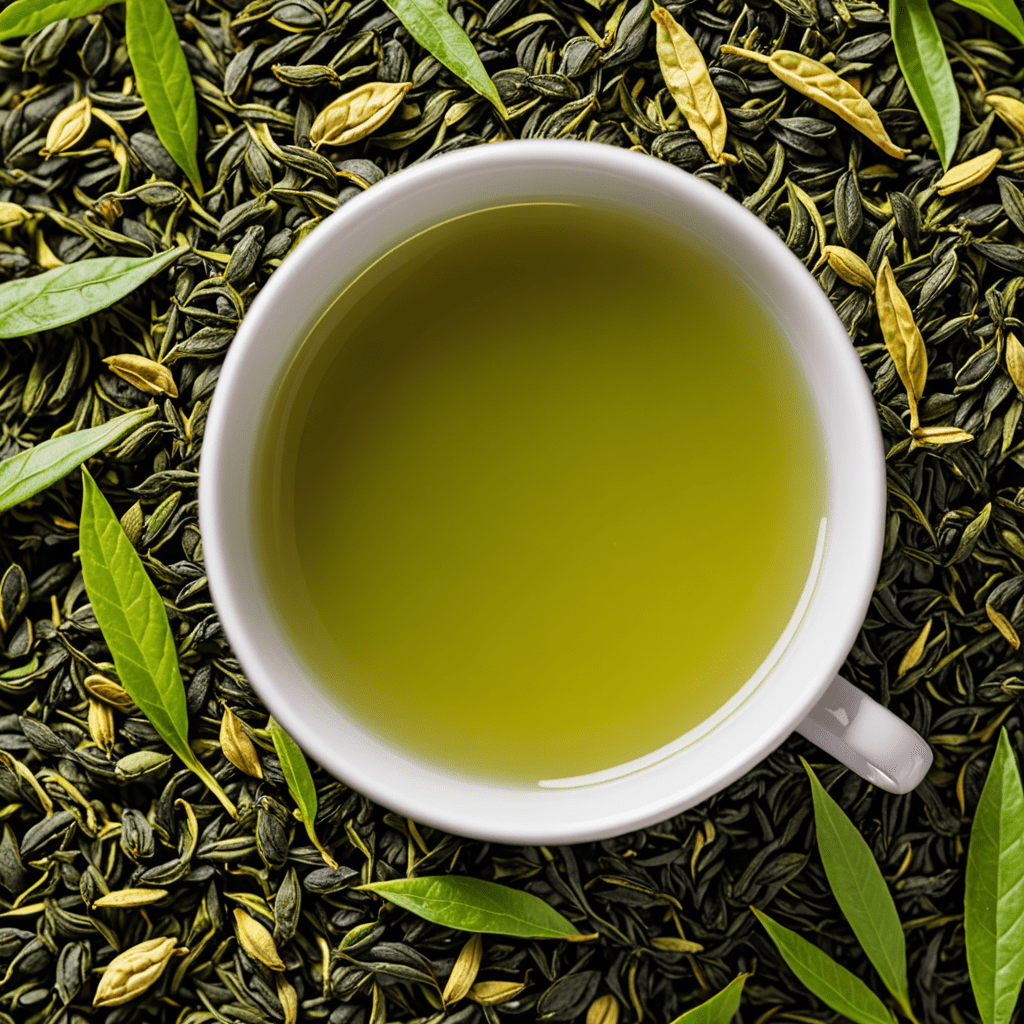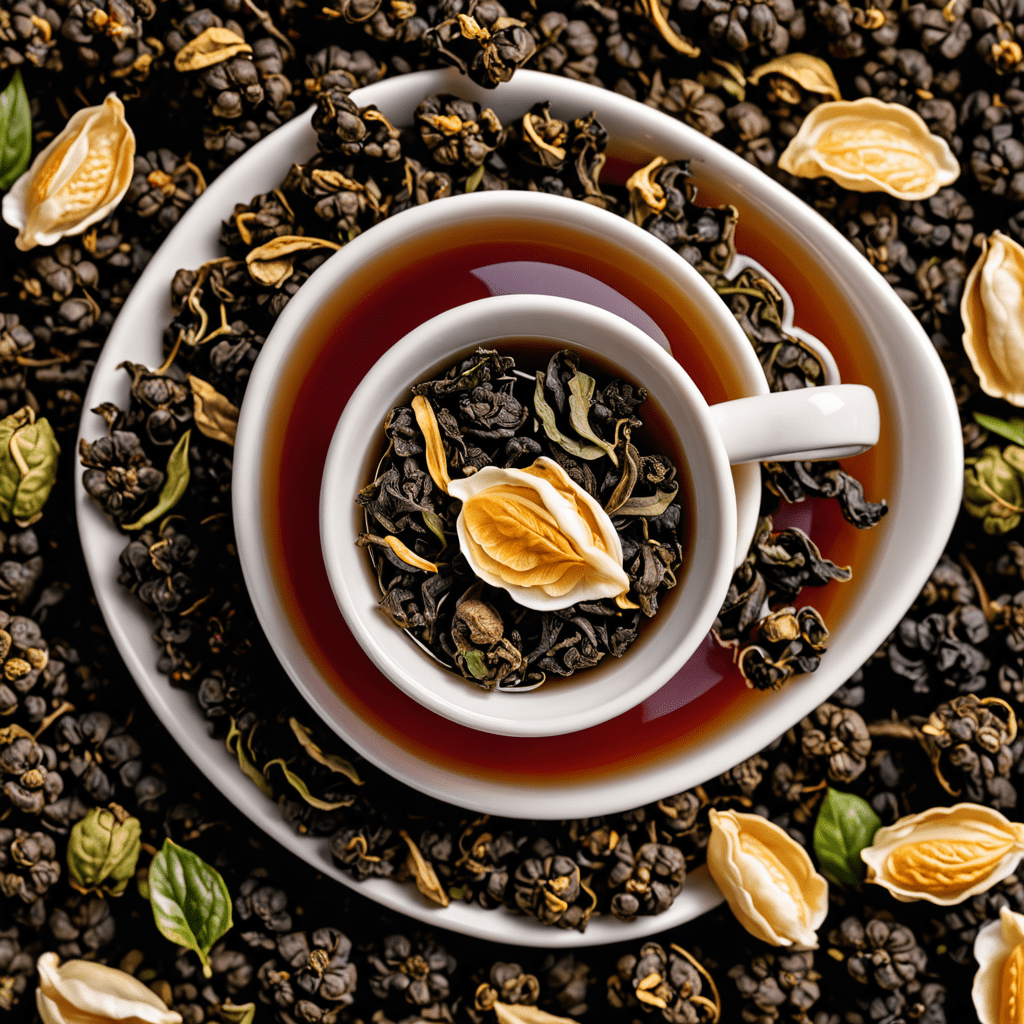
Introduction: The Allure of Assam Tea
Prepare to embark on a journey that unveils the rich history and exquisite flavors of Assam tea, a captivating beverage steeped in legacy and tradition. Hailing from the verdant valleys of Assam, India, this remarkable tea has captivated tea enthusiasts worldwide with its distinctive character and enticing aroma. Join us as we delve into the enchanting world of Assam tea, tracing its origins, exploring its cultivation, and discovering the secrets behind its unique taste and health-promoting properties.
The Legacy of Assam: Birthplace of Black Tea
The story of Assam tea unfolds in the heart of Northeastern India, where the Brahmaputra River nourishes the fertile plains of Assam. This tea-growing region has been instrumental in shaping the world's tea culture, earning its place as the birthplace of black tea. It was here, in the early 19th century, that British planters discovered wild tea trees thriving in the region's abundant forests. Recognizing the potential of these indigenous tea plants, they cultivated them and pioneered the production of black tea, a style that would become the most popular type of tea globally.
The Soil and Climate: Nature’s Perfect Canvas
The allure of Assam tea lies not only in its history but also in the unique soil and climate that nurture its growth. The alluvial soil of Assam, rich in organic matter and minerals, provides an ideal foundation for the tea plants to flourish. The region's subtropical climate, with ample rainfall and warm temperatures, creates an environment where the tea bushes thrive, yielding an abundance of high-quality tea leaves.
The Camellia Sinensis: The Source of Flavor
The Camellia sinensis plant is the source of all tea, and Assam is home to a specific variety that contributes to the distinct flavor and aroma of Assam tea. This variety, known as the Assamica, is characterized by its large, dark green leaves and robust flavor profile. The leaves of the Assamica plant contain a higher concentration of polyphenols, antioxidants that contribute to the tea's health benefits and slightly bitter taste.
The Art of Cultivation: Nurturing the Tea Plant
Assam tea cultivation is a delicate art, passed down through generations of skilled tea farmers. The tea bushes, once planted, require meticulous care and attention to produce the highest quality leaves. Farmers prune the bushes regularly to promote healthy growth and ensure a consistent yield. They also fertilize the soil to provide the plants with the essential nutrients they need to thrive. Timing is crucial in the cultivation process. Farmers closely monitor the tea plants, observing the weather conditions and the maturity of the leaves to determine the optimal time for harvesting.
The Process of Harvesting: A Delicate Touch
Harvesting Assam tea is a delicate process that requires a gentle hand and careful attention to detail. The timing of the harvest is crucial, as it influences the flavor and quality of the tea. Typically, the first flush of leaves, harvested in the spring, produces the most delicate and aromatic teas. Tea pluckers, skilled workers who have mastered the art of harvesting, carefully pluck only the top two leaves and the unopened bud from each branch. This ensures that the tea retains its freshness and flavor.
The Magic of Oxidation: Creating Black Tea
Black tea, the most popular type of Assam tea, owes its distinctive character to the process of oxidation. After harvesting, the tea leaves undergo a controlled oxidation process. During this process, the leaves are exposed to air, allowing enzymes to interact with the tea compounds. This enzymatic reaction causes the leaves to darken and develop their characteristic black color. The level of oxidation can be controlled to produce different grades of black tea, ranging from lighter and more delicate teas to stronger and more robust brews.
The Rich Flavors and Variations of Assam Tea
Assam tea is renowned for its rich and malty flavor profile. The unique combination of soil, climate, and cultivation practices in Assam produces teas with a distinct character. The first flush teas are known for their light and delicate flavors, while the second and third flushes offer a bolder and more robust taste. Assam teas are also known for their high caffeine content, making them a popular choice for tea drinkers seeking an invigorating boost.
The Health Benefits: A Cup of Well-being
Beyond its captivating flavor, Assam tea offers a range of health benefits. The high concentration of antioxidants in Assam tea helps protect the body from free radical damage, reducing the risk of chronic diseases. The caffeine content in Assam tea can improve alertness and focus, making it an ideal beverage for a mid-afternoon pick-me-up. Studies have also shown that Assam tea may aid in weight management and improve cardiovascular health.
The Cultural Significance: Assam Tea in Everyday Life
In Assam, tea is more than just a beverage; it is an integral part of the local culture. The traditional way of serving Assam tea involves adding milk and sugar, creating a rich and flavorful brew known as "Assam milk tea." Tea gardens and tea stalls are a common sight throughout the region, providing locals and visitors alike with a place to socialize and enjoy a cup of this beloved beverage. Assam tea has also gained international recognition, becoming a staple in many tea-drinking cultures around the world.
FAQs: Assam Tea Demystified
What is the difference between Assam tea and other black teas?
Assam tea is known for its robust and malty flavor profile, which is attributed to the unique soil and climate conditions in the Assam region of India.
Is Assam tea high in caffeine?
Yes, Assam tea is known for its high caffeine content, making it a popular choice for tea drinkers seeking an invigorating boost.
What are the health benefits of Assam tea?
Assam tea is rich in antioxidants, which can help protect the body from free radical damage. It may also aid in weight management and improve cardiovascular health.
How should I brew Assam tea?
Assam tea can be brewed using a variety of methods. The traditional way is to add milk and sugar, creating a rich and flavorful brew known as "Assam milk tea."
Where can I buy Assam tea?
Assam tea is widely available in supermarkets, tea shops, and online retailers.

